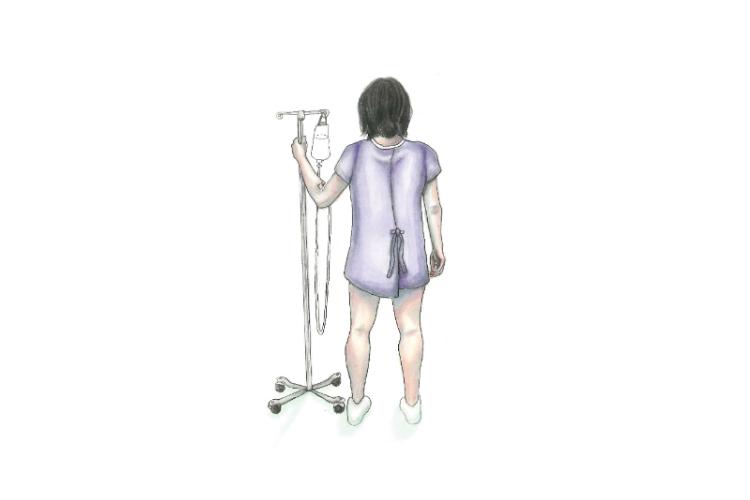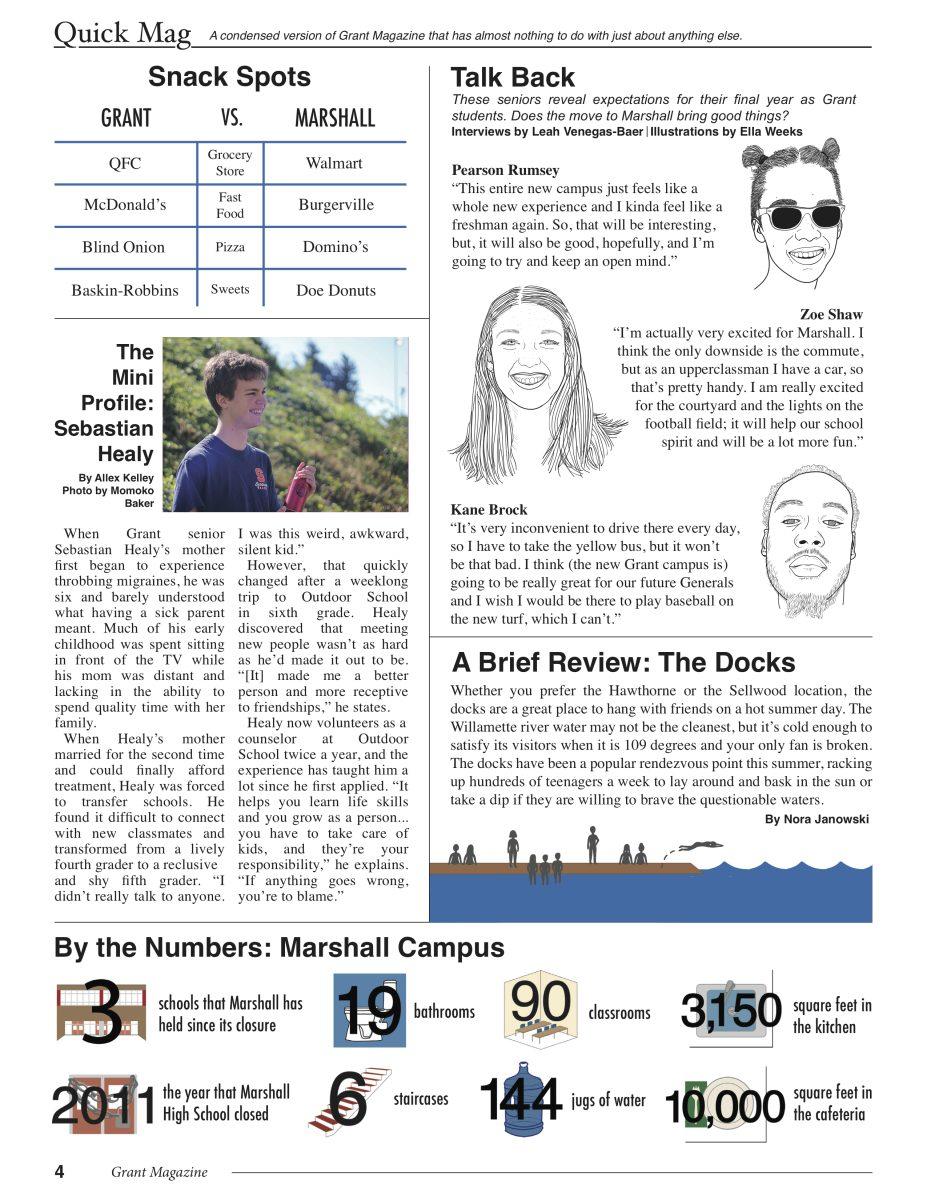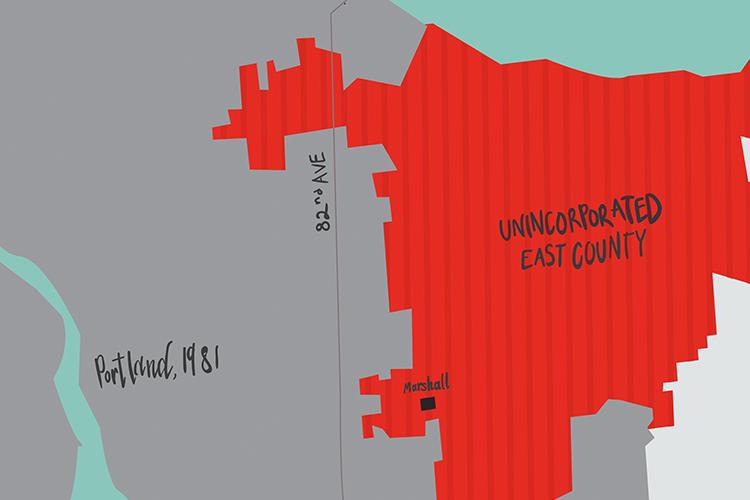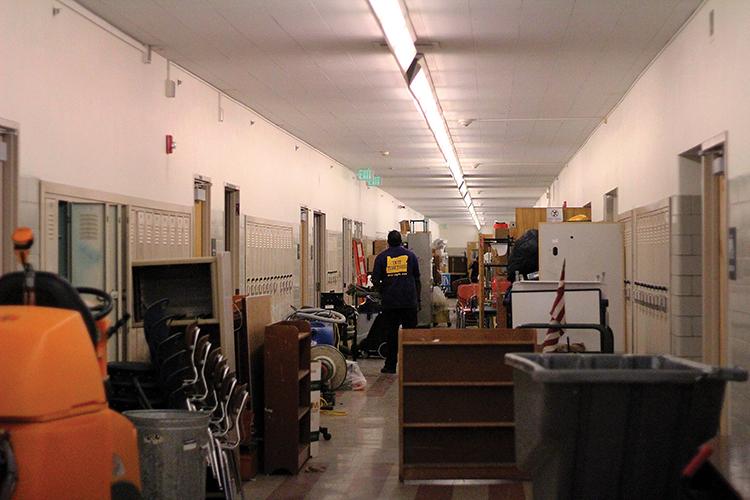
I couldn’t focus on the surgeon’s words. He gestured toward my X-ray pulled up on his computer, but his words were muffled. It was easier to block him out than force myself to listen to him describe the things that were wrong with my back. I tried to make myself smaller as I sat on the examination table, hunching my shoulders and folding my arms over my chest.
This appointment was so similar to the ones I’d been to over the last few months, yet something was different. My parents were quieter, the surgeon’s voice more serious, my usual anxious symptoms more intense. I couldn’t stop biting my nails and my eyes were glazed over as I stared off into space.
I had scoliosis, a condition that curved my spine toward the right. I’d only known about it for two years, but my curve had steadily gotten worse in that short period of time. Check ups with my orthopedic surgeon had become regular.
The mention of surgery came suddenly and abruptly.
I caught snippets of the surgeon’s words as he mentioned how my curve had continued to progress even though I’d stopped growing. I realized he was describing reasons why getting back surgery was a smart decision.
“We could do the surgery now, or we could wait a year to see how the scoliosis progresses,” the surgeon told me.
I’d known my scoliosis was bad, but I didn’t know it was bad enough to warrant surgery.
The room suddenly felt small and empty. When I opened my mouth to speak, my voice sounded foreign, as if it wasn’t even mine. “Let’s just do the surgery,” I said. “Get it over with.”
The orthopedic surgeon asked if I was sure, giving me a chance to back down. I nodded, the lump in my throat preventing any more words.
The surgeon launched into the details of the surgery but my eyes went back to the X-ray and his voice faded into the background again. I glanced at my parents; both had tears in their eyes.
My whole life, every time I’d been presented with an important choice – whether it was staying in the Japanese Magnet Program through high school or quitting basketball in middle school – I’d sought advice from family and friends before choosing what felt like the best option. But this time I couldn’t do that. I only had a few seconds to answer the surgeon’s question; there was no time to think it over or talk to my friends and my parents. No one could make this choice for me.
The procedure was called a spinal fusion. Just hearing the surgeon say it filled me with hesitation. Did I really want this? Metal rods would be screwed into my spine in order to straighten it out. What if something went wrong?
The months that followed that appointment were filled with a nagging worry. Had I made the right choice? My medical history was spotless – not even a sprained ankle or a broken wrist. Surgery is the one medical procedure that has always terrified me.
As the surgery got closer, my fears increased. Despite poring over thick packets filled with information about the procedure, I still felt I didn’t know what to expect.
When I’d first decided on surgery back in January 2017, my back pains were few and far between. But when school came to a close, I was feeling discomfort almost every day. Going on runs after school usually helped me relieve stress, but running made me feel lopsided and off-balance. Sitting for too long left me aching and stiff. Surgery was necessary; there was no getting around it. But I was still afraid.
When we arrived at the hospital at 5:30 AM on July 3, I was in a sour mood. I didn’t want to talk to anyone, and when I had to, I wasn’t very kind. My fear, mixed with the chaos of the morning, was getting the best of me.
I lay on the hospital bed in silence, waiting for the nurse to bring medication. A phone call from my boyfriend and the nurse’s jokes improved my mood momentarily. Yet I couldn’t stop worrying about worst case scenarios where I woke up in the middle of the surgery, or didn’t wake up at all.
My memories before I was given anesthesia end in the pre-op room, surrounded by my smiling family and comforting nurses.
The rest of that day – the surgery itself – was the easiest part for me. But for my parents and little sister, it was torture. While I was in a deep sleep, they sat anxiously in the waiting room, or walked around the hospital throughout the entirety of my nine-hour operation.
The five days I spent in the hospital after surgery were a fog of tears, sleep and medication. I was constantly exhausted and in pain, drifting in and out of sleep and suffering from frequent breakdowns. I spent almost all of those five days in bed and barely ate anything. Every time I woke up, there was a new nurse coming in to help me with medication.
I had an overpowering feeling that I was completely and utterly alone in this. No one could teach me how to do the things I’d taken for granted. My back was stiff, rigid and in constant pain. I lost all flexibility and the smallest of tasks left me exhausted.
That feeling worsened when I got home. I was frustrated with myself because I couldn’t do the simplest of things without running into a problem. I couldn’t bend over the sink to brush my teeth or hold a glass to my mouth without spilling. My meltdowns didn’t stop when I got home from the hospital; if anything, they got worse.
I spent all day and night in my parent’s bed. Social media fueled my loneliness with bright pictures of my smiling friends, many of whom were on a school trip in Japan. The few friends I had that had stayed in Portland came to visit me a few times, but I didn’t feel like my usual social self.
I didn’t eat because I was often overcome with nausea. I could only sleep after taking pain medication. At times, I wished I was back in the hospital; while the constant rotation of nurses had been confusing, it had made me feel less alone.
But somewhere along the way, I stopped wallowing in self-pity. I deleted social media apps from my phone. I started reading again, returning to childhood favorites that filled me with a sense of comfort. I started taking pride in small victories, like walking to the end of the block or making it up and down the stairs without help. The time I spent alone felt less lonely.
While my friends were finding their independence on a school trip on the other side of the world, I was finding mine in the confines of my own home.
Soon I was taking daily walks, going farther from my house each time and wearing what I wanted, rather than picking my outfits based on what would cover my scar best. I started spending more time with friends and family. By the time I started physical therapy in mid-August I was completely off my medication. Though I wasn’t even close to full recovery, the progress I’d made so far felt like a cause for celebration.
On the morning of the first day of school this year, I was sitting in the car next to my sister. It would be her first day of middle school and my first day of my junior year of high school. I was terrified. I felt nauseous, I was sweating and my hands were shaking. I was close to tears. I couldn’t stop replaying the times that graduates had told me junior year was the hardest year of high school. I didn’t feel ready. But thinking back to my surgery calmed me down. Remembering that old fear didn’t make me more scared; it made me feel strong.
I’m still struggling to keep ahold of that independence I found this summer. Every day presents new challenges. My five-pound limitation on how much I can hold prevents me from carrying supplies for all of my classes. One class period can leave me exhausted and feeling over-worked. But now I listen to what my surgeon has to say and engage in conversation instead of blocking him out at my follow-up appointments. I look at my X-rays with pride. And though I may be unsure of my future, I stand tall and hold my experience with me. Because I am no longer afraid.



































